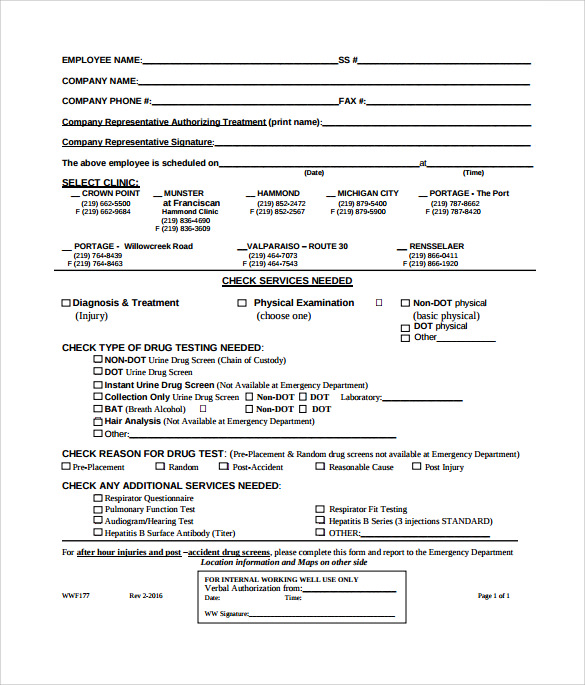Dot Physical Form For Ups Drivers

Oct 04, 2018 TRUCKER DOCS™ is a dynamic panel of DOT Certified Doctors helping Commercial Drivers through the DOT Physical jungle. We are DOT certified medical examiners, and we're around to answer questions - especially those tough ones related to a driver's personal circumstances - that no-one else is answering. Please leave a QUESTION or COMMENT below. Sep 11, 2017 - The DOT exam that will determine whether or not the driver is fit for work based on medical history, as well as current health status.
About the Exam A Department of Transportation (DOT) physical examination must be conducted by a licensed 'medical examiner' listed on the Federal Motor Carrier Safety Administration (FMCSA) National Registry. The term includes, but is not limited to, doctors of medicine (MD), doctors of osteopathy (DO), physician assistants (PA), advanced practice nurses (APN), and doctors of chiropractic (DC). A DOT physical exam is valid for up to 24 months. The medical examiner may also issue a medical examiner's certificate for less than 24 months when it is desirable to monitor a condition, such as high blood pressure. Recordkeeping If the medical examiner finds that the person he/she examined is physically qualified to drive a commercial motor vehicle (CMV), the medical examiner will furnish one copy of the results to the person who was examined and complete a Medical Examiner's Certificate.
What if the DOT drug screen tests positive? The DOT drug screen is looking for illegal or non-prescription drugs. Yet, sometimes normal prescription medications can trip a positive test. If the urinalysis is positive for one or more of the drugs on the 5 panel drug test, then the driver will be contacted in person by the Medical Review Officer.
The MRO will interview the driver to determine if there is an alternative medical explanation for the drugs found in the urine specimen. If the driver provides appropriate documentation from a prescribing physician, a confirmation test with a split sample is performed for each identified drug. Confirmation ensures that over-the-counter medications or preparations are not reported as positive results. If the MRO determines that it is a legitimate medical use of the prohibited drug, the drug test result is reported as negative to the employer. Otherwise the drug test will be reported as positive. Trudoemkostj rabot lada largus.
Led by special operations veterans, Stanford Medicine affiliated physicians, paramedics and other travel experts, Ripcord is perfect for adventure seekers, climbers, skiers, sports enthusiasts, hunters, international travelers, humanitarian efforts, expeditions and more. 'This site is the BIBLE for international bike travelers.' What others say about HU. Is now available for ALL nationalities, and travel is covered on motorcycles of all sizes!
What are the requirements for blood sugar limits? I just found a job driving school bus. I am a diabetic, non-insulin dependent.
When I took the test my blood sugar was 350, but in the past few days I’ve gotten it down to about 170. I have never had a low or high blood sugar blackout. Will I have to get an exemption? The medical examiner needs to see your blood sugar levels below 120. That is the level for blood sugar spillover into the urine. The concern is not whether you have ever had a blood sugar blackout, it’s – Could you have a blood sugar blackout while driving a bus full of little people? Safety first for you, the driver, and for the public at large.
I’m a CDL driver. I had to start insulin for my diabetes. My medical card expires in a month. Will the doctor know I’m taking insulin when he does my tests?
It does not matter whether he knows or not. On the DOT medical examination form that you fill out, it will ask if you are a diabetic and also how you control the condition. So you are the one who is going to tell him about the insulin. Your examining doctor should ask quite a few questions regarding your insulin usage to help determine your options. Can I still drive if I take prescription Paxil, Imitrex, and Zonisamide?
These three drugs are going to be a red flag for any examiner. You should bring with you a, explaining the need for the medications and their possible side effects. All three are listed with side effects of drowsiness, weakness, dizziness, and should not be used while driving or using machinery. You are going to have to explain to the medical examiner why and how much if any of these medications you are taking and the basic circumstances for their needs. Can I take Xanax and still drive truck?

My doctor put me on it and I don’t want to lose my job. One of the best ways for a driver to answer a question about whether a medication may be a disqualifier or not, is to read about the side effects of that medication.
Lets take a look at some of the side effects of Xanax which include: “ Drowsiness, light-headedness, headache, tiredness, dizziness, irritability, talkativeness, difficulty concentrating, dry mouth, increased salivation, changes in sex drive or ability, nausea, constipation, changes in appetite, weight changes, difficulty urinating, and joint pain. Some other side effects can be serious. The following symptoms are uncommon, but if you experience any of them, call your doctor immediately: shortness of breath, seizures, seeing things or hearing voices that do not exist (hallucinating), severe skin rash, yellowing of the skin or eyes, depression, memory problems, confusion, problems with speech, unusual changes in behavior or mood, thinking about harming or killing yourself or trying to do so, and problems with coordination or balance.” As you can see, some of these issues can be unsafe for you and the public. It will cause any medical examiner to question your reaction to this medication. Talk with your prescribing doctor and ask questions with regards to driving while using any medication.